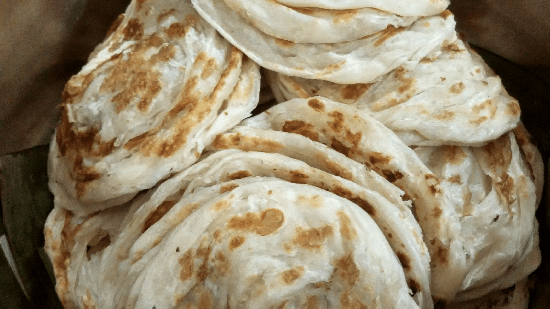
Karnataka’s Authority for Advance Ruling (AAR) has ruled that frozen and preserved wheat parotas and malabar parotas with a shelf life of three to seven days are not plain ‘rotis’ but a distinct product that would attract 18% GST.
Reason: Unlike Plain roti or parota served in a restaurants, frozen parota is preserved, sealed packed and branded. It is sold at a premium and it is not a staple item. It is consumed by the affluent class that could afford to pay tax.
Khakhra, plain chapatti and roti are completely cooked preparations, do not require any processing for human consumption and hence are ready to eat food preparations, whereas whole wheat Parotas and Malabar Parotas are not only different from the said khakhras, plain chapatti or roti but also are not like products in common parlance as well as in the respect of essential nature of the product. These products also require further processing for human consumption.
Parota is not covered by any other heading under the Harmonized System of Nomenclature (HSN) system and also need to be processed for human consumption, so it needs to be charged under heading 2106, and not heading 1905 which covers foods like cakes, pastry that are completely cooked foods and are ready for consumption.
About Authority for Advance Ruling
Section 100(1) of the CGST Act, 2017 provides that the concerned officer, the jurisdictional officer or an applicant aggrieved by any advance ruling pronounced by the Authority for Advance Ruling, may appeal to the Appellate Authority.
The Authority for advance ruling constituted under the provisions of State Goods and Services Tax Act or Union Territory Goods and Services Tax Act shall be deemed to be the Authority for advance ruling in respect of that State or Union territory under the CGST Act, 2017 also.
Both the Authority for Advance Ruling (AAR) & the Appellate Authority for Advance Ruling (AAAR) is constituted under the respective State/Union Territory Act and not the Central Act. This would mean that the ruling given by the AAR & AAAR will be applicable only within the jurisdiction of the concerned state or union territory. It is also for this reason that questions on determination of place of supply cannot be raised with the AAR or AAAR.
An advance ruling pronounced by AAR or AAAR shall be binding only on the applicant and on the concerned officer or the jurisdictional officer in respect of the applicant. This clearly means that an advance ruling is not applicable to similarly placed other taxable persons in the State. It is only limited to the person who has applied for an advance ruling.
The law does not provide for a fixed time period for which
the ruling shall apply.


